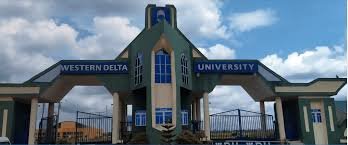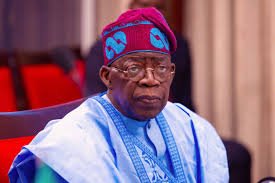In a 2018 report, the World Health Organization (WHO) released data, which indicated that approximately 29 million out of Nigeria’s national population of 195 million were living with disabilities.
These numbers shed light on the significant challenges faced by Persons with Disabilities (PWDs), who encounter social, economic, and infrastructural difficulties in their daily lives.
From stigmatization to limited access to education, healthcare, and employment, PWDs navigate a world that often fails to accommodate their needs.
The United Nations Convention on the Rights of Persons with Disabilities defines disability as long-term physical, mental, intellectual, or sensory impairments that, when combined with societal barriers, hinder a person’s full participation in society.
Astonishingly, a recent WHO report from March 2023 estimated that 1.3 billion people globally experience significant disabilities. This represents 16% of the world’s population or one in every six individuals.
Read Also: Yacht Listed In Supplementary Budget Is Naval Boat Not For Tinubu’s Use — Presidency
Furthermore, the same report reveals a disturbing truth: persons with disabilities are at a higher risk of developing various health conditions and dying up to 20 years earlier than their non-disabled counterparts.
Discrimination and inequities persist, fueled by stigma, prejudice, poverty, exclusion from education, limited job opportunities, and systemic barriers within the healthcare system itself.
Negative societal attitudes, based on wrong notions and myths, perpetuate harmful treatment of PWDs. Traditional beliefs associating disabilities with punishment or witchcraft have further deepened the existing prejudices.
While some PWDs face daily challenges and endure emotional abuse, there are those who refuse to let society limit their dreams.
Individuals like John Amara and Yusuf Afolabi demonstrate incredible resilience and determination in the face of adversity. Despite being subjected to verbal abuse and societal prejudice; they refuse to be defined by their disabilities.
However, access to education remains an arduous journey for many PWDs. Denied admission based solely on their disabilities, these individuals encounter hurdles even after overcoming family obstacles.
Gloria Nwafor, a woman with multiple disabilities, has chosen to uplift others through her NGO, supporting female persons with disabilities and empowering them to weather life’s storms.
Unfortunately, high rates of unemployment plague the disabled community, with businesses frequently disregarding their qualifications due to preconceived biases.
Read Also: Again,Tinubu Seeks Senate’s Approval For fresh $7.8bn, €100m Loans
Members of the Joint National Association of Persons with Disabilities recount numerous instances when they aced online tests and assessments, only to be denied employment opportunities upon physical interactions.
The story of Ifeoma Anibeze, who lost several jobs due to her disability-induced limitations, is a stark reminder of the barriers PWDs face in the workforce.
While laws and international instruments exist to protect the rights of PWDs, their implementation and enforcement remain inadequate.
Nigeria’s Discrimination Against Persons with Disabilities (Prohibition) Act of 2018 aims to prevent discrimination, but its effectiveness in curbing stigmatization and exclusion is questionable. Efforts must be redoubled to educate the populace about disabilities and promote understanding and empathy.
The truth remains that disability can affect anyone at any time, making it crucial for society to treat persons with disabilities with dignity, respect, and inclusivity.
By creating a more accepting and accommodating environment, we not only empower individuals with disabilities but also foster diversity, empathy, and understanding that enriches the lives of everyone.
It is time to shatter the barriers and build a society that values the contributions of persons with disabilities, ensuring equality and inclusivity for all.























